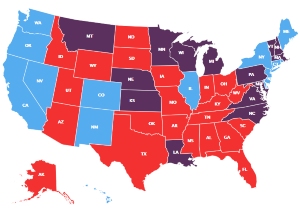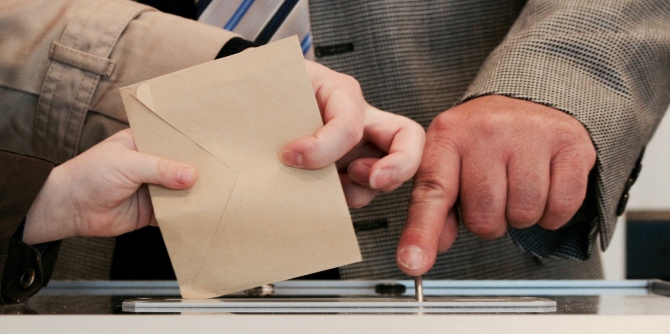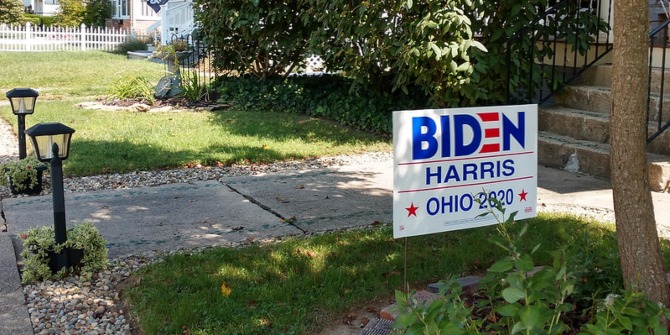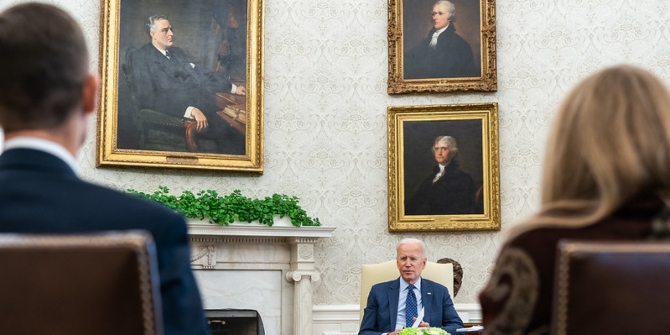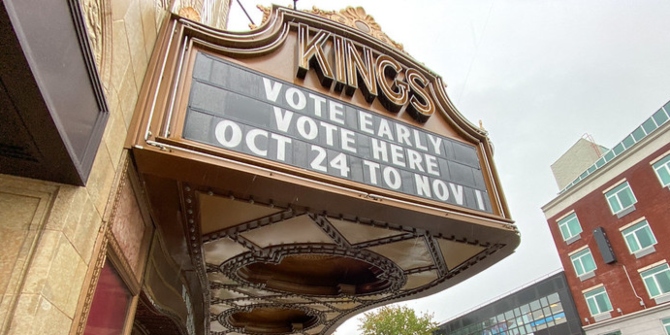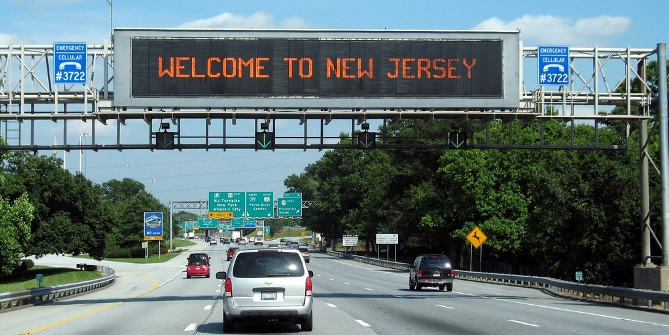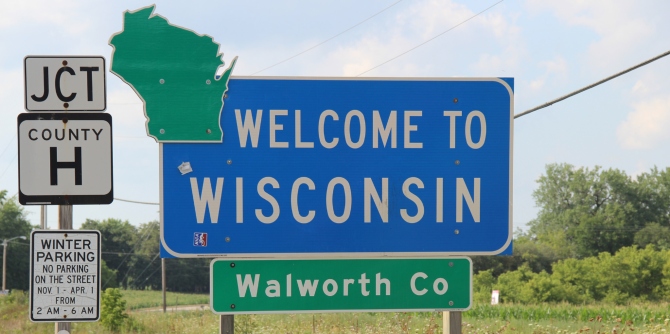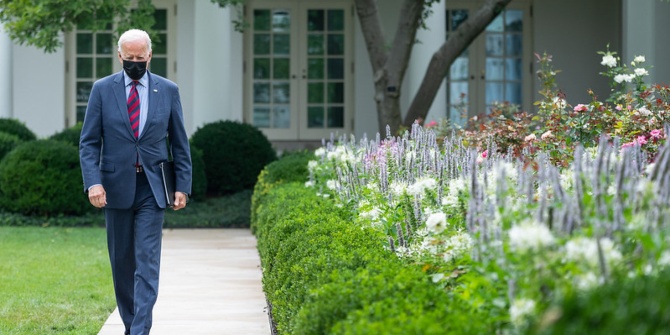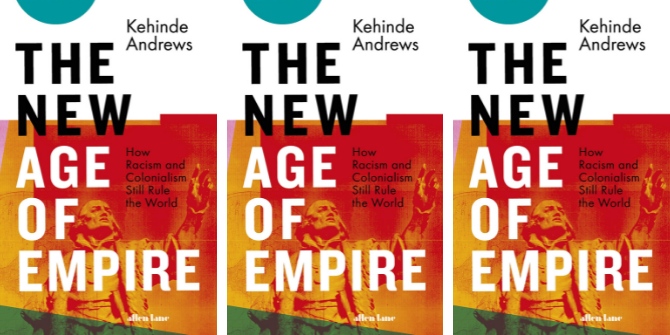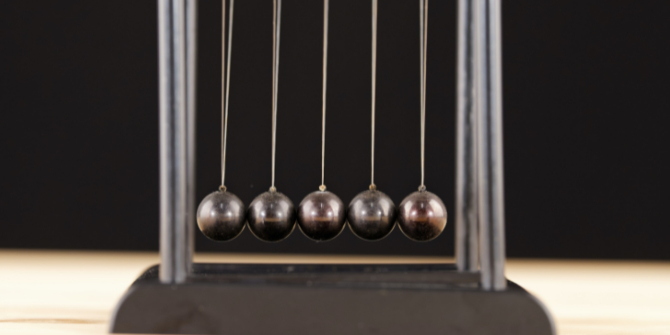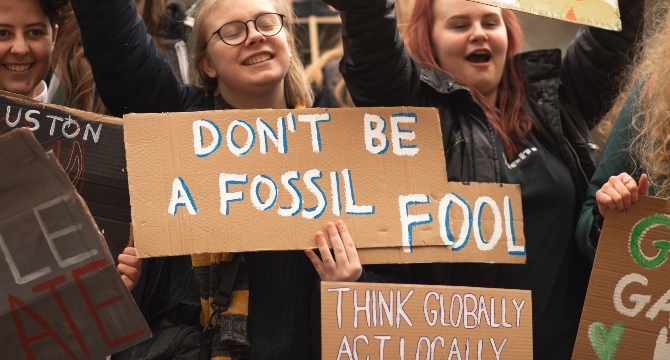 The COVID-19 pandemic has caused major shifts and changes to this election year’s political schedule, among them the Republican National Committee’s decision to shift the party’s presidential nominating convention from Charlotte, North Carolina, to Jacksonville, Florida. Kevin Fahey writes that President Trump has been the driving force behind this change, and that he believes that moving the convention will bolster his chances in Florida, avoid #BlackLivesMatter protests, and provide a red-carpet spectacle for his voting base.
The COVID-19 pandemic has caused major shifts and changes to this election year’s political schedule, among them the Republican National Committee’s decision to shift the party’s presidential nominating convention from Charlotte, North Carolina, to Jacksonville, Florida. Kevin Fahey writes that President Trump has been the driving force behind this change, and that he believes that moving the convention will bolster his chances in Florida, avoid #BlackLivesMatter protests, and provide a red-carpet spectacle for his voting base.
- This article is part of our Primary Primers series curated by Rob Ledger (Frankfurt Goethe University) and Peter Finn (Kingston University). Ahead of the 2020 election, this series explores key themes, ideas, concepts, procedures and events that shape, affect and define the US presidential primary process. If you are interested in contributing to the series contact Rob Ledger (ledger@em.uni-frankfurt.de) or Peter Finn (p.finn@kingston.ac.uk).
The novel coronavirus has killed more than120,000 Americans (as I write this, coronavirus cases are increasing in 30 US states and Puerto Rico) and infected millions more. US gross domestic product (GDP) contracted by 4.8 percentage points in the first quarter of 2020, with a forecast from Deloitte showing that GDP is expected to fall by a cumulative 17 percentage points by the end of the second quarter of 2020. The killing of George Floyd by a police officer in late May has led to sustained social unrest and civil disobedience not seen in the United States in decades. There is deep cynicism amongst the electorate as pride in, and satisfaction with, the United States has declined substantially in recent months. At the same time, President Trump now finds himself facing extraordinarily-long re-election odds:
Figure 1 – US National polls, March – June 2020

Credit: 538
In the face of these unprecedented political headwinds, Trump has found himself engaged in the minutiae of a seemingly mundane task: moving elements of the Republican National Committee’s four yearly presidential nominating convention (and, until this year, the convention that wrote the party platform) from Charlotte, North Carolina, to Jacksonville, Florida. Most importantly, his convention speech will be held in Jacksonville.
Why is he doing this?
It is unclear why Trump is spending time thinking about his convention speech, but there are three plausible explanations. First, Trump and Republicans are increasingly worried about Florida; a loss in Florida would be devastating for Trump’s re-election prospects. Second, Trump and Republicans are increasingly concerned about social unrest disrupting large elements of his convention; a move to Jacksonville might mitigate some of those concerns. And third, Trump – ever the showman – is concerned that social-distancing guidelines in North Carolina would undermine his preference for a packed, celebratory nominating convention.

RNC2016 by Matt Shiffler Photography is licensed under CC-BY-NC-SA-2.0
Florida’s importance for Trump
The electoral prospects of Trump in Florida are growing increasingly daunting. Despite my earlier claims that the 2020 presidential election will not hinge on the Sunshine State, Florida has started to look like a critical tipping-point. If we assume that Democratic nominee, former Vice President Joe Biden can guarantee the twenty states plus Washington DC that Hillary Clinton won in 2016 – worth 232 electoral votes – then he needs 38 more electoral votes to become President. Statewide polling of the 2020 race in recent weeks indicates that Biden is very likely to win Michigan (which has 16 electoral votes), helped by Trump’s own mis-steps in the state. A win in Florida (with 29 electoral votes) – where recent polls show Biden leading by as much as eleven points – would earn Biden 277 electoral votes and the presidency. If this happens, Biden can even afford to lose Pennsylvania, Wisconsin, Arizona, or North Carolina, as shown Figure 2 below.
Figure 2 – Speculative 2020 presidential election map

Source: 270toWin
It’s clear that for Trump, Florida has become a must-win state. Moving the nominating convention to Jacksonville may give Trump a temporary post-convention boost in polling there, and may give him an enduring boost in support in the Jacksonville metropolitan area. A spate of new polls show Trump losing Florida by an average of seven percentage points, showing how critical it is he tighten the race. In light of this information, the move to Jacksonville appears to be a smart strategy.
#BlackLivesMatter and the move to Jacksonville
That said, Jacksonville’s interest to Trump and Republicans may have more to do with the Black Lives Matter protests than electoral advantage. Charlotte is an ethnically diverse city where Black/African American citizens represent 35 percent of the population. By contrast, Jacksonville is significantly less diverse; only 13.4 percent of the city’s population are Black/African American. While both cities are racially segregated, the heavier population density of Charlotte relative to Jacksonville may have convinced the President that Black Lives Matter demonstrations, or anti-Trump protesters, in Charlotte could be substantially larger and more effective at disrupting the convention. Such disruptions might erode any post-convention polling boost, and further damage his electoral chances. Again, the move to Jacksonville appears to be a smart calculation.
Additionally, the Democratic Governor of North Carolina, Roy Cooper, has signaled support for the Black Lives Matter movement and told the Republican National Committee that, due to the pandemic, “a full-scale convention is very unlikely.” By contrast, Florida Governor Ron DeSantis, a Republican, has been accused of manipulating coronavirus statistics to permit easing social distancing measures and has largely ignored the Black Lives Matter movement. President Trump may see in DeSantis an ally who would restrict large protests around the convention site and permit a convention more in line with Trump’s personal preferences.
Trump wants a showpiece convention
This brings us to the third plausible explanation: Donald Trump wants a made-for-TV convention, and North Carolina’s coronavirus restrictions have angered him. According to an essay from POLITICO, Trump sees his presidency through the lens of large events such as a nominating convention:
For all his norm-breaking, Trump adores old-fashioned pageantry. He has waxed enthusiastic about military parades and reveled in royal red-carpet treatment overseas. And little has captivated him as much as the lively quadrennial jamborees when a political party chooses its presidential candidate. Indeed, according to GOP operatives I spoke to who were with him 32 years ago at their party’s convention in New Orleans, the four-day crescendo of public affirmation is what piqued his interest in the presidency in the first place.
Other news corroborates this argument. A recent essay from The Atlantic argues that the Trump re-election campaign is spending a large amount of campaign resources to reassure Trump’s concern that he is losing:
There is, however, one obsessive television viewer in the D.C. area whom the ads can sway: Trump. The Daily Beast reported earlier this week that the hope is to pacify the president, who has gotten more agitated about his reelection prospects as the polls, the economy, and the pandemic all look gloomy for him.
Further, Trump’s recent, underwhelming rally in Tulsa may make him more anxious to have a made-for-TV moment with large, adulatory crowds. From this perspective, the move from Charlotte to Jacksonville is not a strategic calculus, but addresses a need for positive reinforcement during what will be an incredibly brutal, negative re-election campaign. Moving the nominating convention to Jacksonville will allow the President to stage an event in front of a friendly venue, without distraction from the massive disruption to social and economic life going on outside the convention hall. Thus, the RNC’s move has no strategic benefit to the Republican Party, but acts on behalf of the personal interests of the president. Indeed, the move has angered top officials in the Republican Party of North Carolina, who publicly lambasted the national party.
Regardless of the explanation, the truth is that moving the convention is unlikely to make a significant difference to the election result, despite what Trump thinks. If the economy rebounds, the protests disappear, and treatments/vaccines for the virus emerge before November, those news events are likely to assure President Trump’s re-election. If the economy continues to falter, social unrest continues, and the virus continues killing large numbers of Americans, no amount of tweaking the national convention will save Donald Trump from an electoral catastrophe. It is this reality that makes his prioritization of the convention so puzzling. It is unclear why he does not focus on combating the virus, protecting Americans from the economic contraction, or addressing the root causes of police brutality and systemic racism. As to his motives, we can only speculate.
Please read our comments policy before commenting.
Note: This article gives the views of the author, and not the position of USAPP – American Politics and Policy, nor of the London School of Economics.
Shortened URL for this post: https://bit.ly/2YLi46y
About the author
 Kevin Fahey – Swansea University
Kevin Fahey – Swansea University
Kevin Fahey is a Lecturer in Politics in the Department of Political & Cultural Studies at Swansea University. He studies study political institutions and elite behavior, with specialization in subnational politics.

